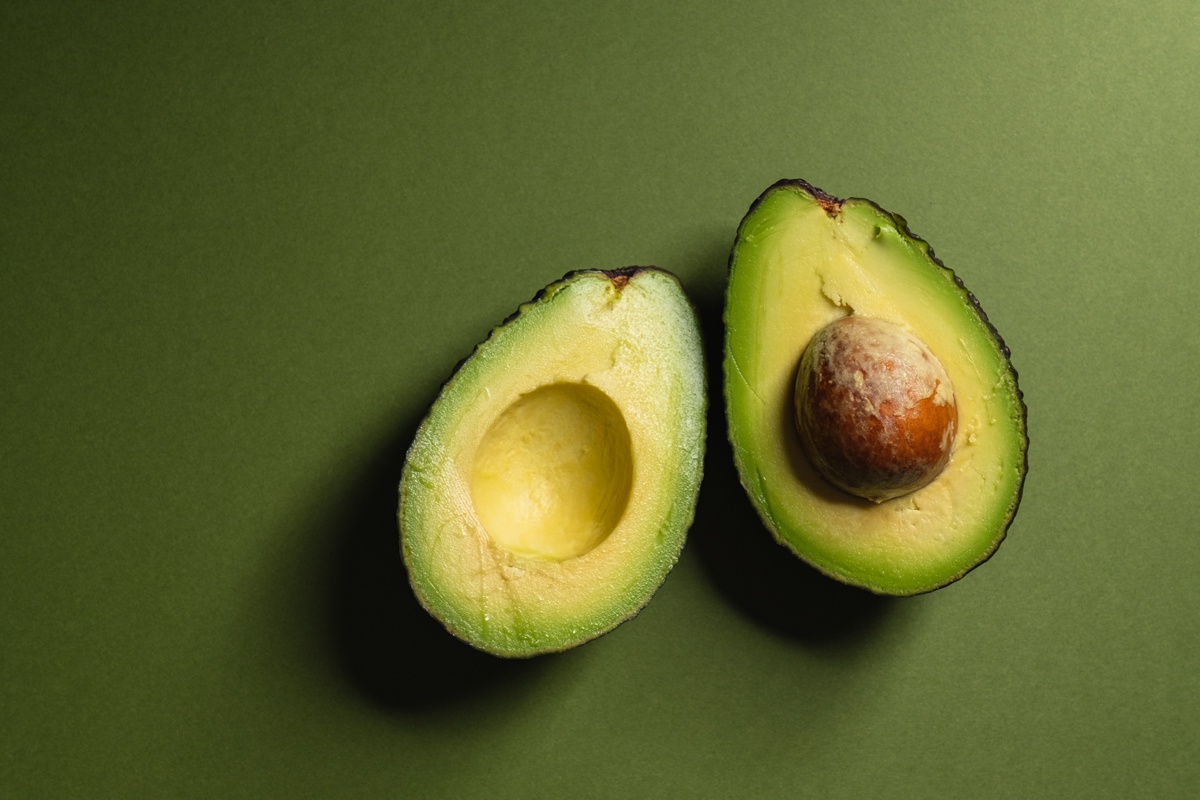
25 foods rich in vitamin C to add to your diet
Vitamin C is an essential nutrient that acts as an antioxidant in the body, which means it helps protect cells from free radical damage. It is also necessary for the production of collagen, which is an important protein for skin, bones and connective tissues.
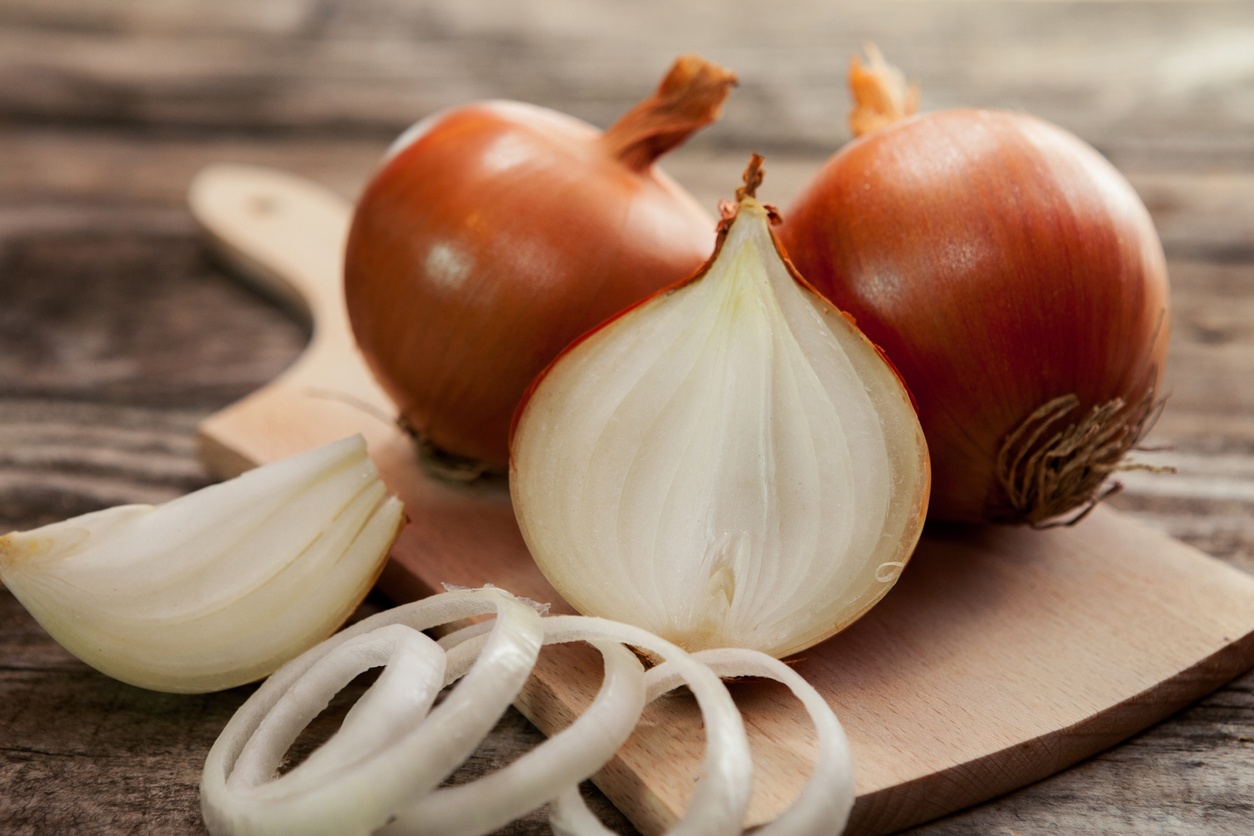
Onions
Onions are a good source of vitamin C. A 100-gram serving of raw onion contains about 7.4 mg of vitamin C, which is about 10% of the recommended daily amount for an adult. In addition to vitamin C, onions also contain other important nutrients, such as vitamin B6, manganese and fiber. Vitamin B6 is important for brain health and mood regulation, while manganese is essential for bone formation and nervous system function. In addition, the fiber in onions can help regulate digestion and maintain a healthy gut. Onions can be eaten raw or cooked, and are a versatile ingredient in many recipes. In addition to providing flavor and nutrients, onions also have anti-inflammatory and antioxidant properties that may help protect against chronic diseases such as cancer and heart disease.
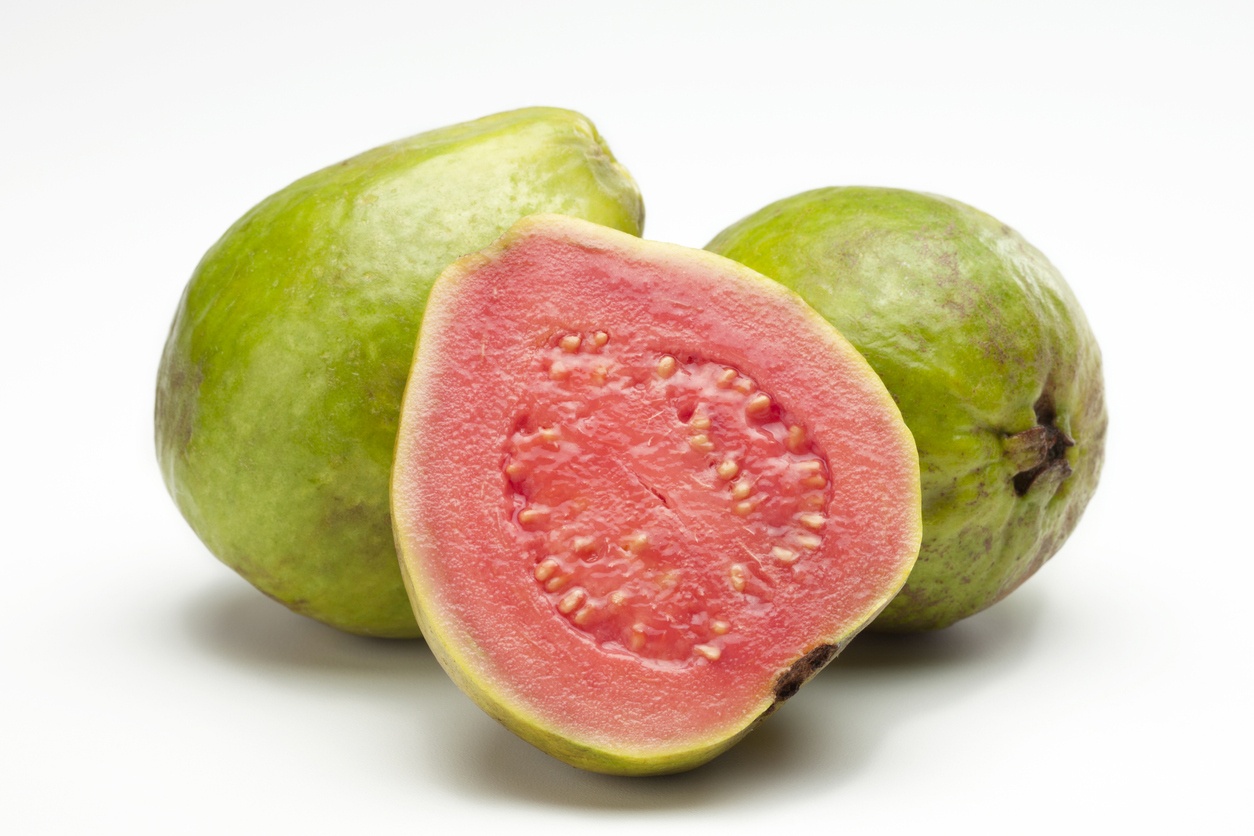
Guava
Guava is a fruit very rich in vitamin C. In fact, a single medium-sized guava can contain up to 250 mg of vitamin C, which is more than twice the recommended daily amount for an adult. In addition to vitamin C, guava is also rich in other health-promoting nutrients, such as fiber, potassium, and vitamins B and E. Therefore, including guava in your diet can be a good way to increase your intake of vitamin C and other important nutrients.
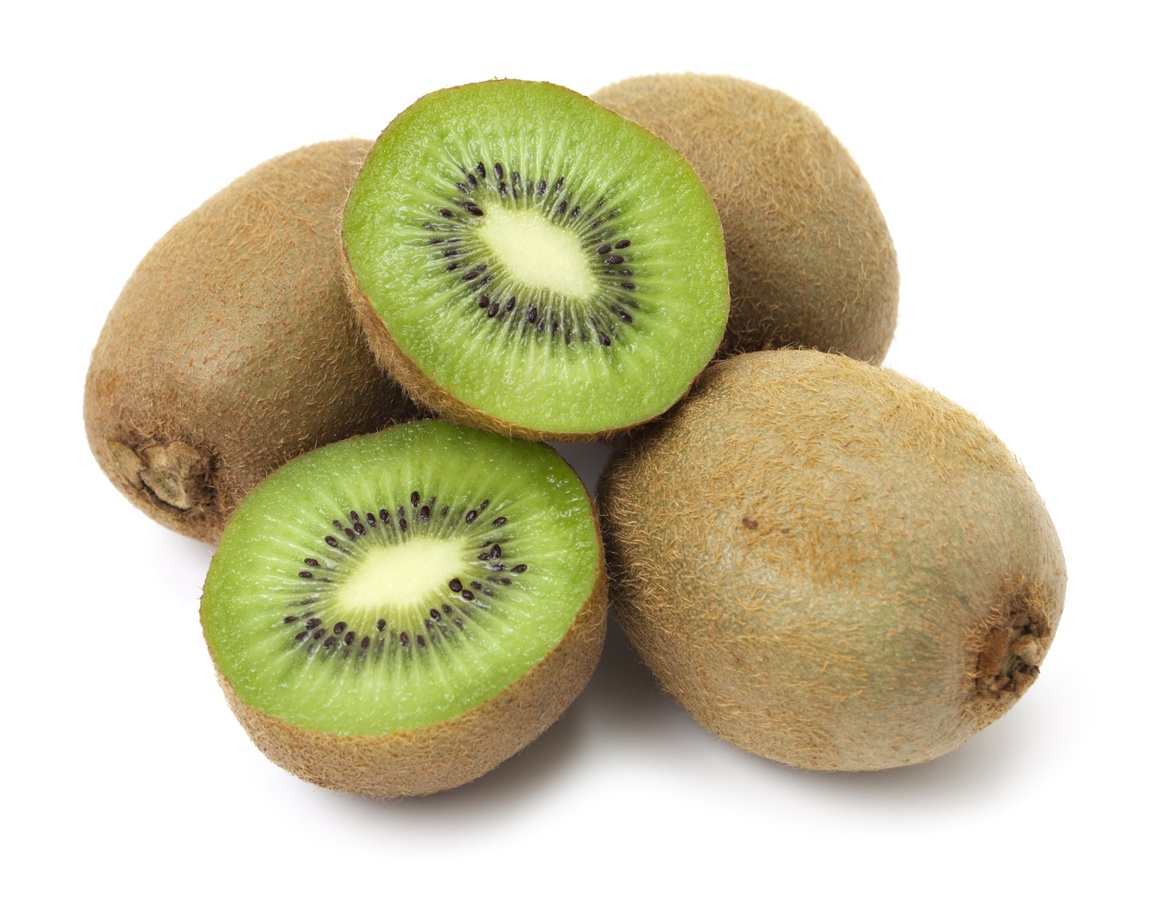
Kiwifruit
Kiwifruit is another fruit that is an excellent source of vitamin C. In fact, a single medium-sized fruit can contain about 70 to 90 mg of vitamin C, which is more than what is found in an orange. In addition to vitamin C, kiwifruit is also rich in other health-promoting nutrients such as fiber, potassium and vitamins K and E. Therefore, including kiwis in your diet can be a good way to increase your intake of vitamin C and other important nutrients.
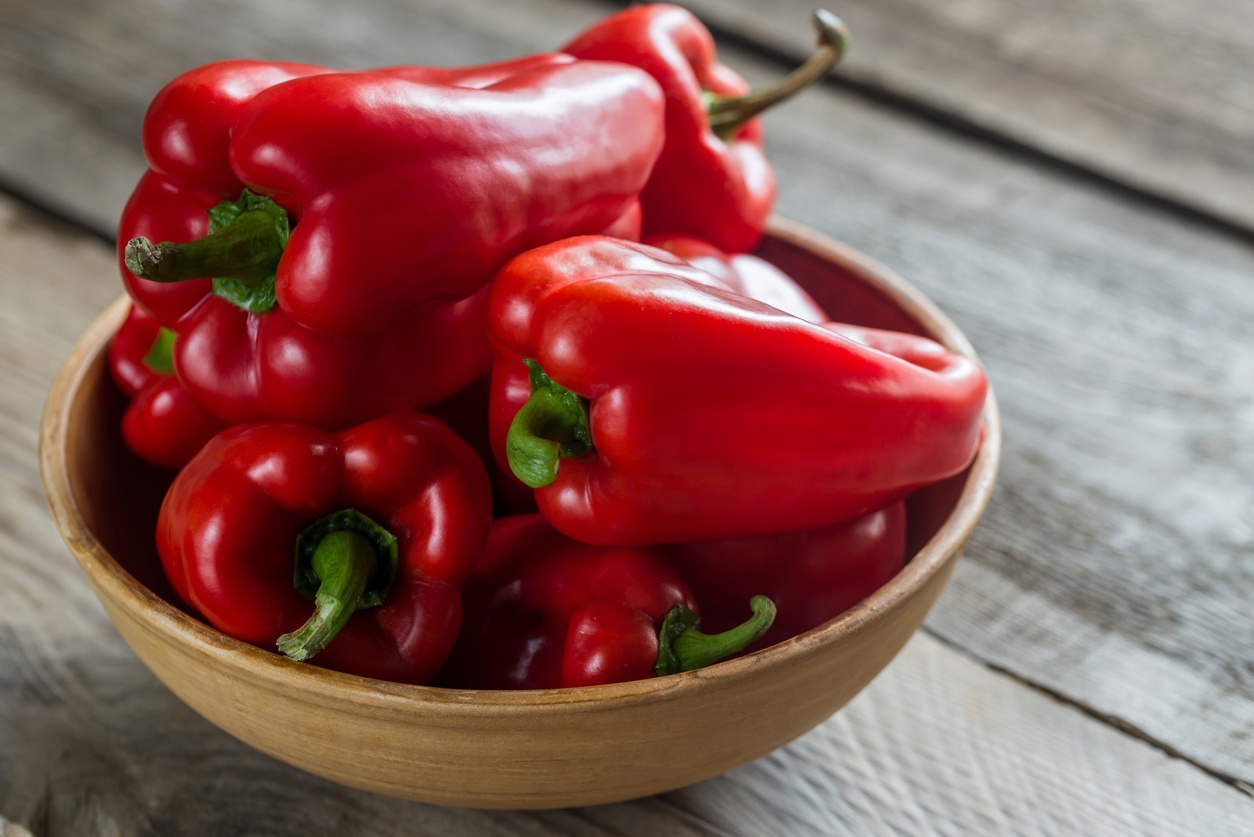
Red bell pepper
Bell pepper is a vegetable rich in vitamin C. In fact, a single cup of raw red bell bell pepper can contain about 150-200 mg of vitamin C, which is more than the recommended daily amount for an adult. In addition to vitamin C, peppers are also rich in other health-promoting nutrients, such as vitamin A, fiber and potassium. Peppers come in various colors, such as red, green and yellow, and all of them are a good source of vitamin C. Therefore, including peppers in your diet can be a good way to increase your intake of vitamin C and other important nutrients.

Orange
The orange is one of the best known fruits for its vitamin C content. In fact, one medium orange can contain about 70 to 90 mg of vitamin C, which is more than 100% of the recommended daily amount for an adult. In addition to vitamin C, oranges are also rich in other nutrients beneficial to health, such as fiber, potassium and vitamin A. Therefore, including oranges in your diet can be a good way to increase your intake of vitamin C and other important nutrients.
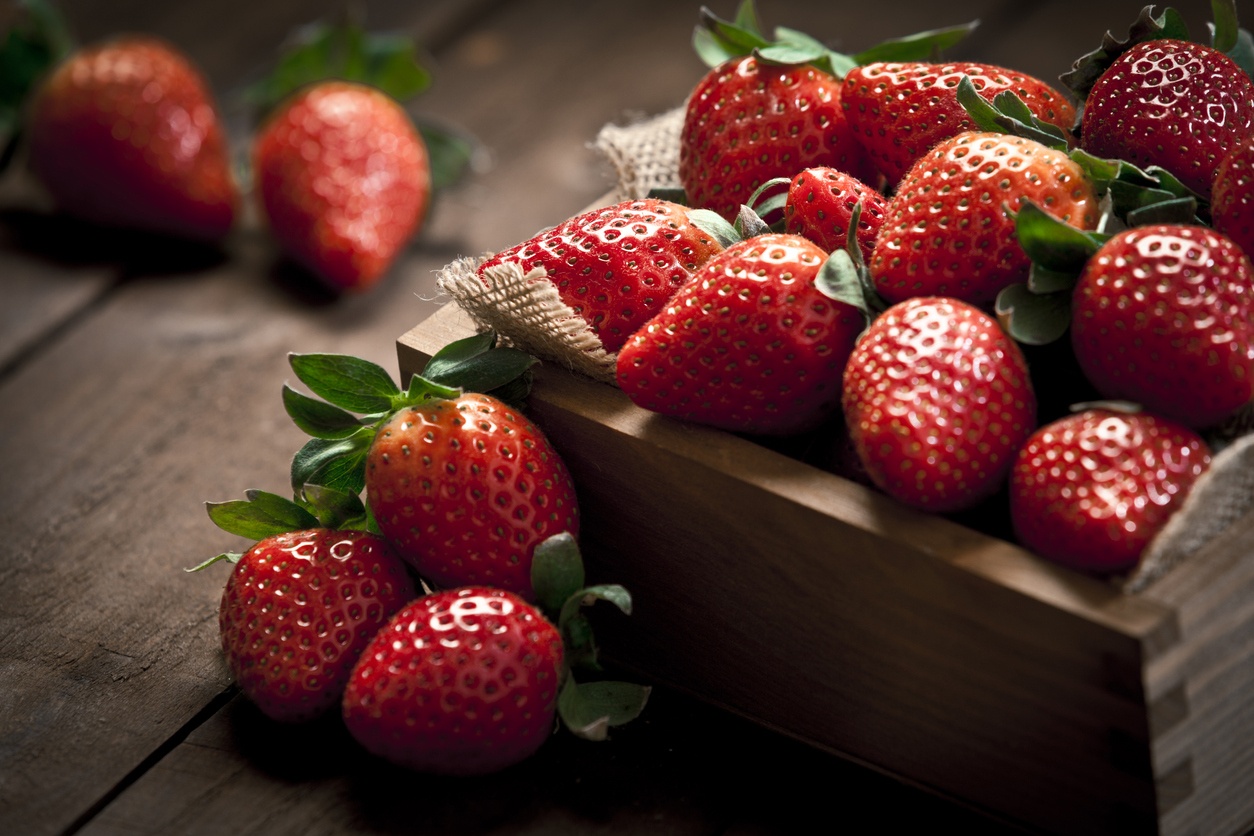
Strawberry
Strawberries are a fruit that is very rich in vitamin C. In fact, one cup of strawberries can contain about 85 mg of vitamin C, which is more than the recommended daily amount for an adult. In addition to vitamin C, strawberries are also rich in other health-promoting nutrients, such as fiber, potassium and vitamin K. Therefore, including strawberries in your diet can be a good way to increase your intake of vitamin C and other important nutrients.
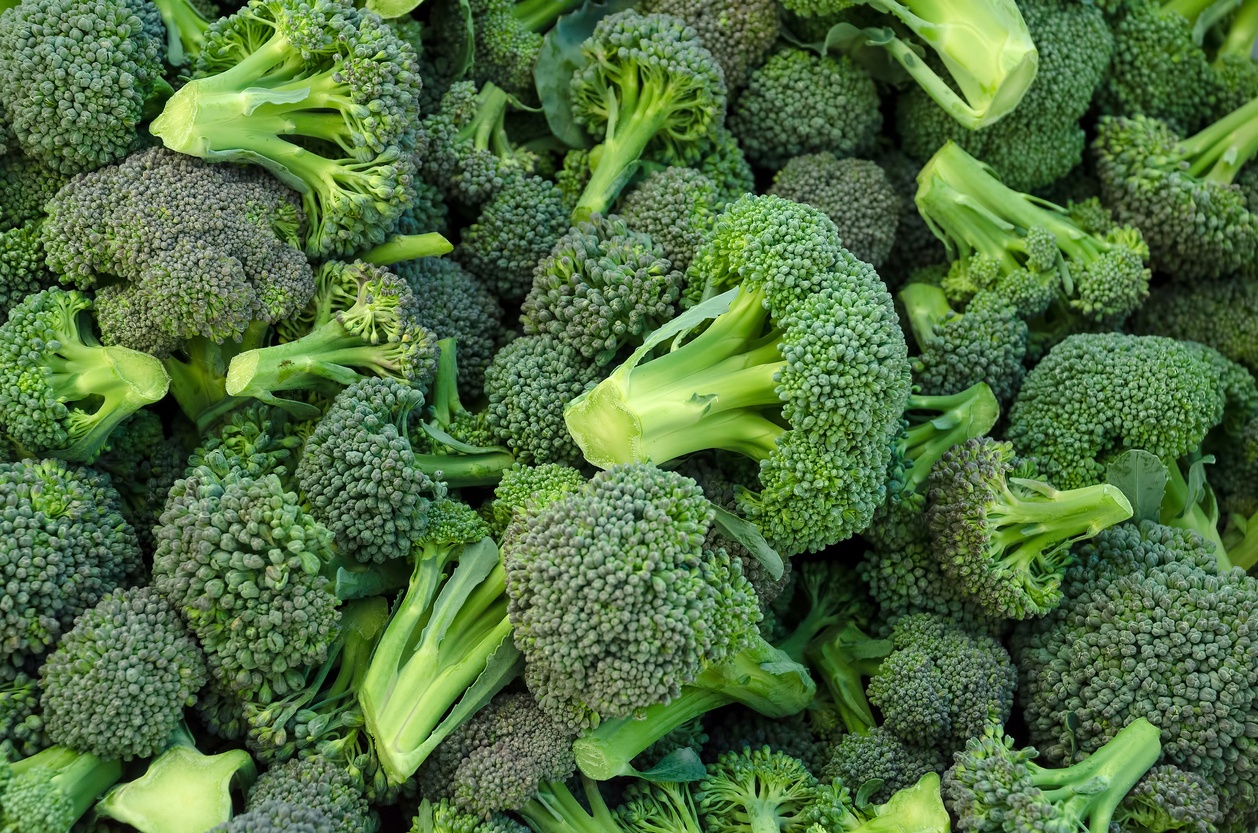
Broccoli
Broccoli is a cruciferous vegetable rich in vitamin C. One cup of cooked broccoli can contain about 80 mg of vitamin C, which is more than 100% of the recommended daily amount for an adult. In addition to vitamin C, broccoli is also rich in other health-promoting nutrients such as fiber, vitamin K and folate. Therefore, including broccoli in your diet can be a good way to increase your intake of vitamin C and other important nutrients.
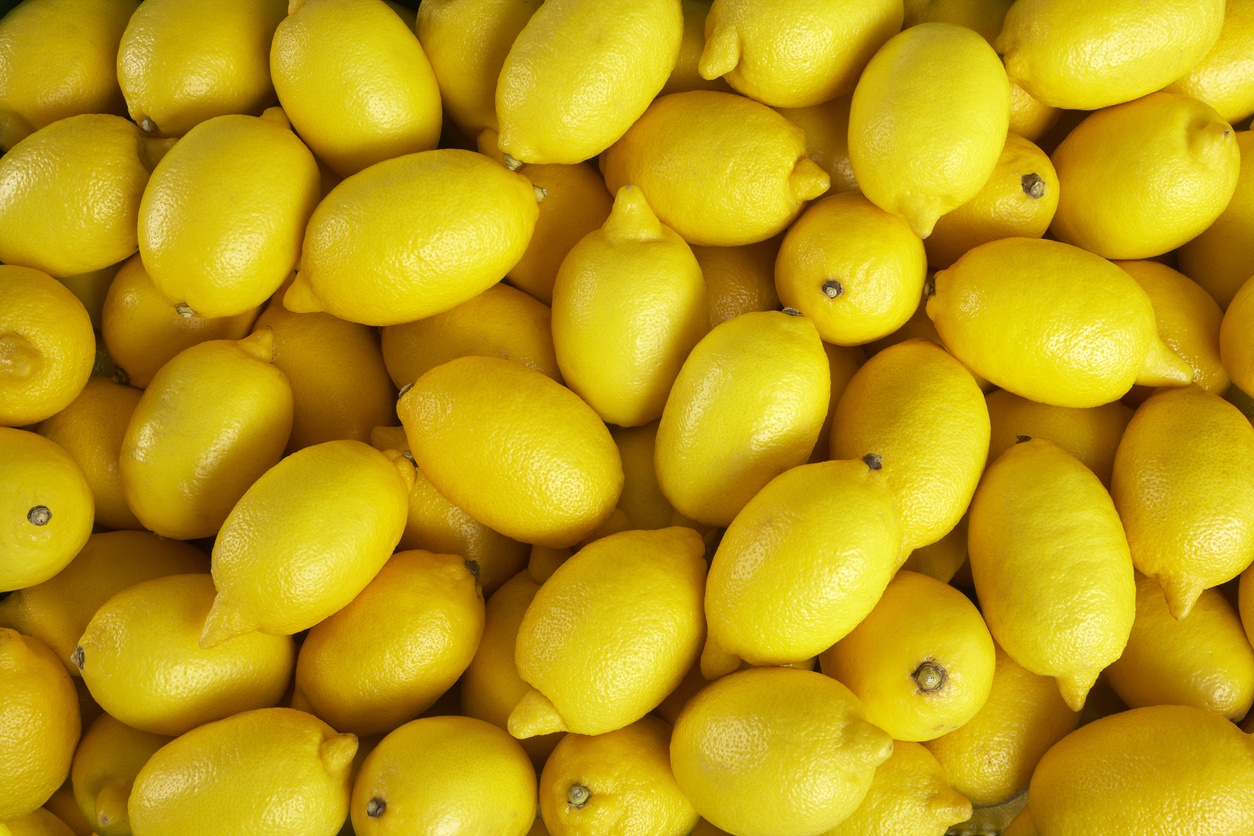
Lemon
Lemon is another fruit that is very rich in vitamin C. In fact, a single medium-sized fruit can contain about 30 to 40 mg of vitamin C. In addition to vitamin C, lemon is also rich in other health-promoting nutrients, such as fiber and potassium. Lemon is also known for its ability to aid digestion and improve nutrient absorption. Therefore, including lemons in your diet can be a good way to increase your intake of vitamin C and other important nutrients.
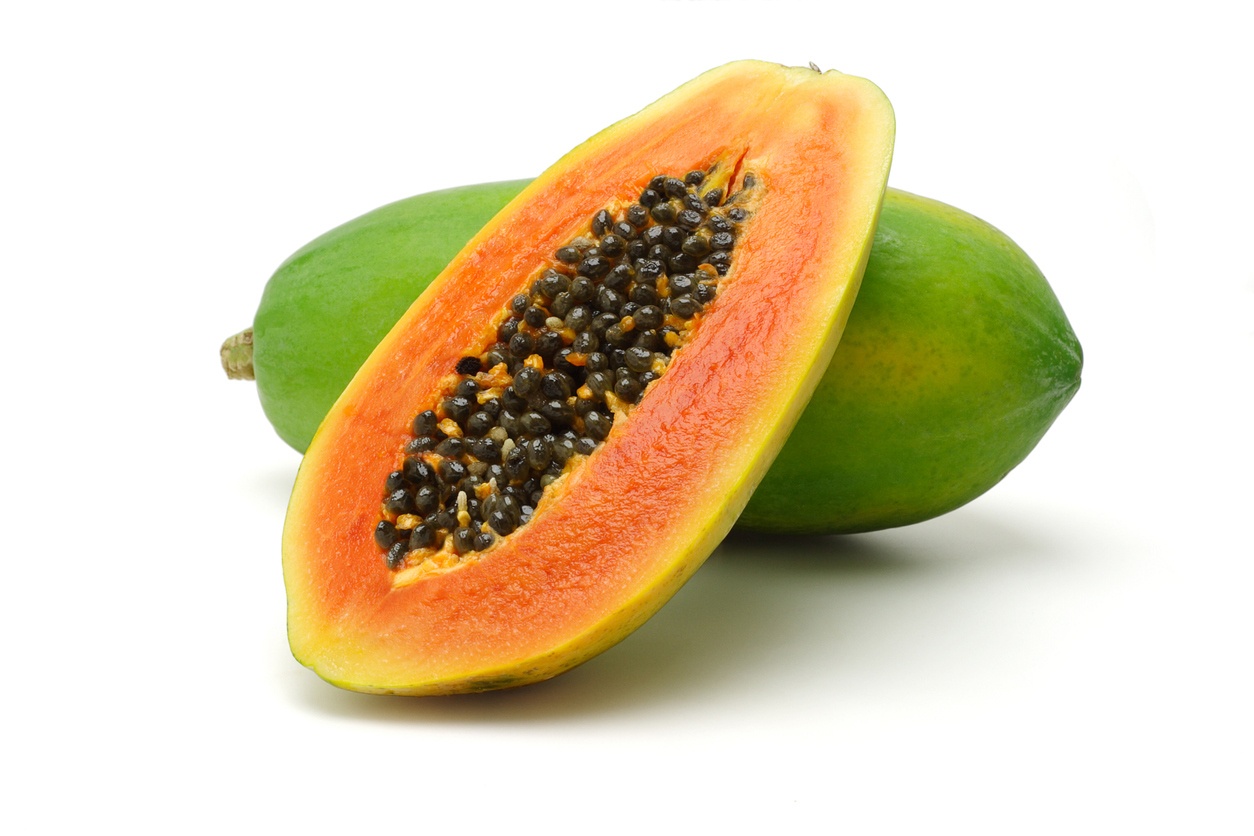
Papaya
Papaya is a tropical fruit that is rich in vitamin C. In fact, one cup of chopped papaya can contain about 88 mg of vitamin C, which is more than 100% of the recommended daily amount for an adult. In addition to vitamin C, papaya is also rich in other health-promoting nutrients, such as fiber, vitamin A and potassium. It also contains digestive enzymes, such as papain, which can aid in the digestion of proteins. Therefore, including papaya in your diet can be a good way to increase your intake of vitamin C and other important nutrients.
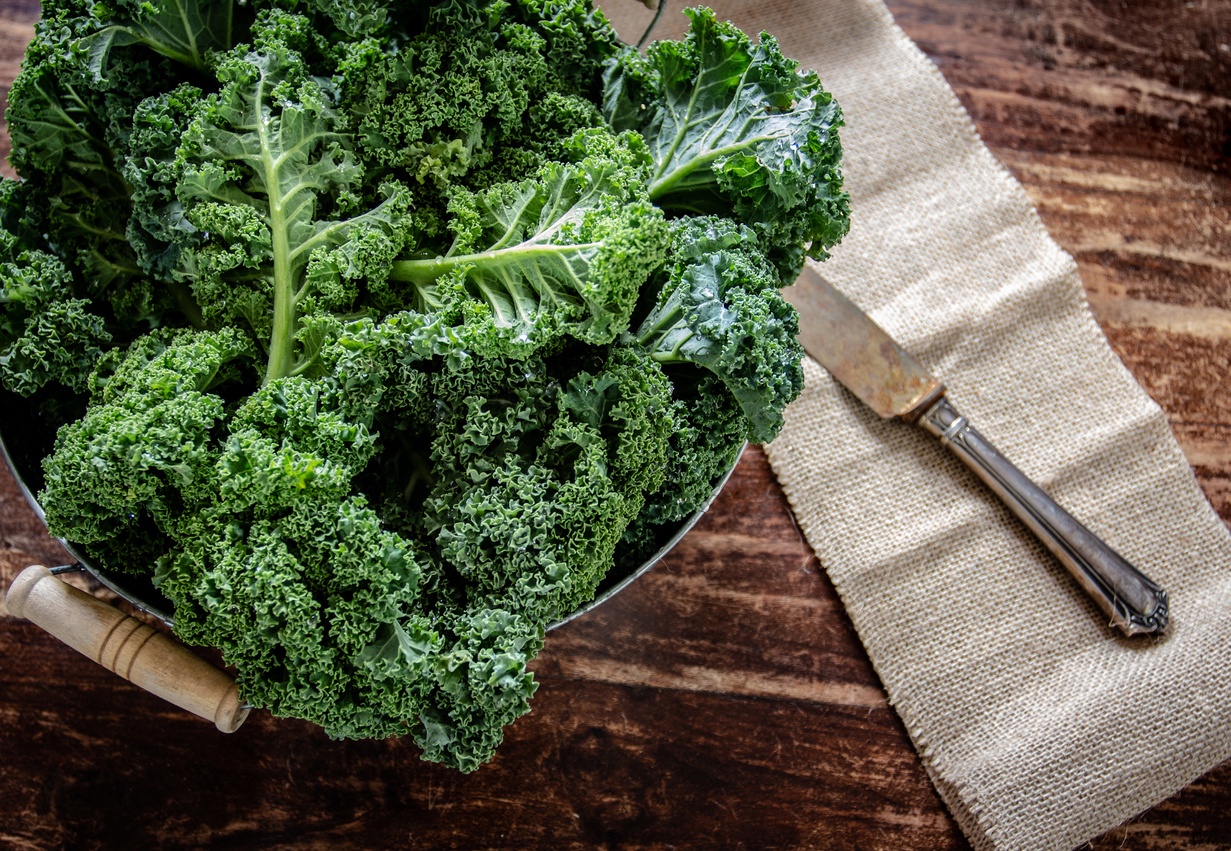
Kale
Kale is a dark green, nutritious vegetable that is rich in vitamin C. One cup of chopped raw kale can contain about 80 mg of vitamin C, which is more than 100% of the recommended daily amount for an adult. In addition to vitamin C, kale is also rich in other health-promoting nutrients such as vitamin K, calcium and iron. It is also low in calories and rich in fiber, making it an excellent choice for those looking to lose weight or maintain a healthy weight. Therefore, including kale in your diet can be a great way to increase your intake of vitamin C and other important nutrients.
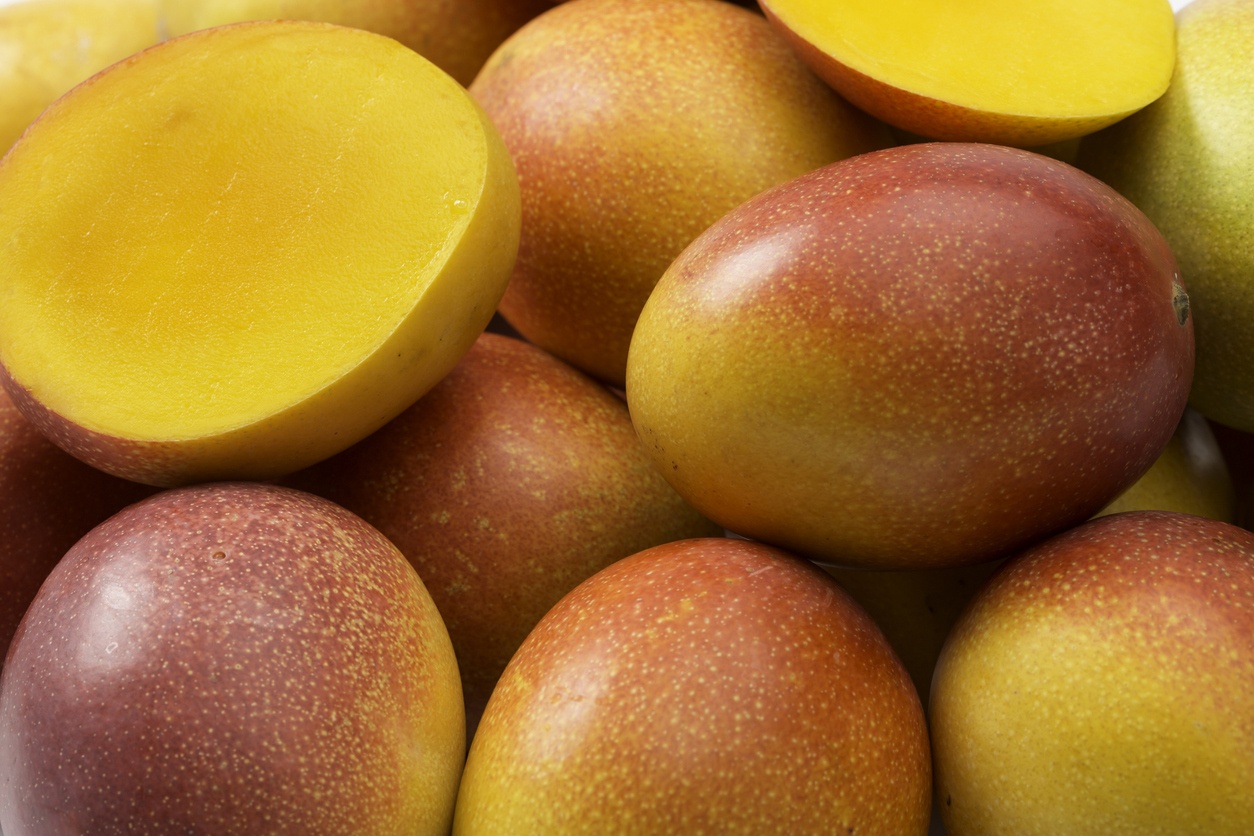
Mango
Mango is a sweet and juicy tropical fruit that is rich in vitamin C. One cup of chopped mango can contain about 60 mg of vitamin C, which is about 80% of the recommended daily amount for an adult. In addition to vitamin C, mango is also rich in other health-promoting nutrients such as vitamin A, fiber and potassium. It also contains antioxidant compounds such as carotenoids, which can have protective effects on the body. Therefore, including mango in your diet can be a good way to increase your intake of vitamin C and other important nutrients.
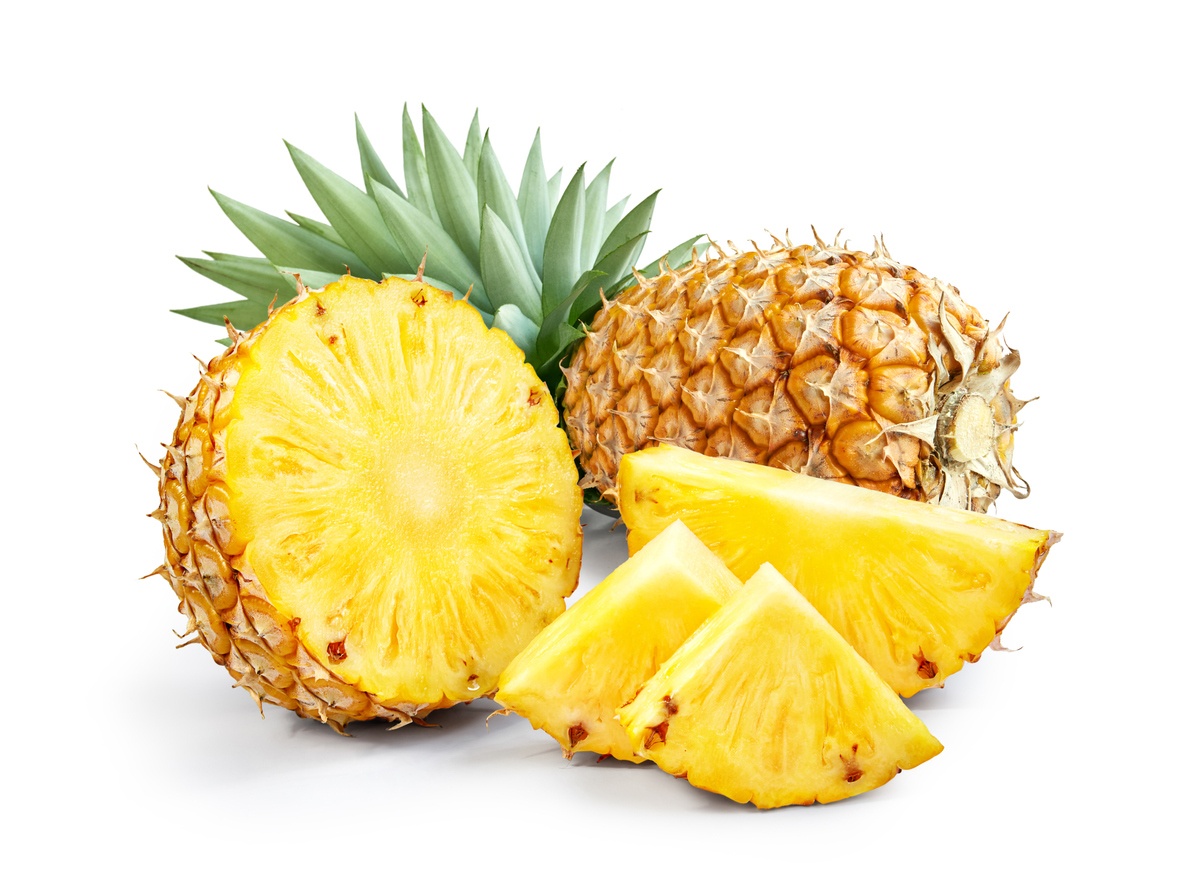
Pineapple
Pineapple is a sweet and juicy tropical fruit that is rich in vitamin C. One cup of chopped pineapple can contain about 80 mg of vitamin C, which is about 100% of the recommended daily amount for an adult. In addition to vitamin C, pineapple is also rich in other health-promoting nutrients, such as bromelain, an enzyme that can aid in protein digestion and has anti-inflammatory properties. Pineapple is also low in calories and rich in fiber, making it an excellent choice for those looking to lose weight or maintain a healthy weight. Therefore, including pineapple in your diet can be a good way to increase your intake of vitamin C and other important nutrients.
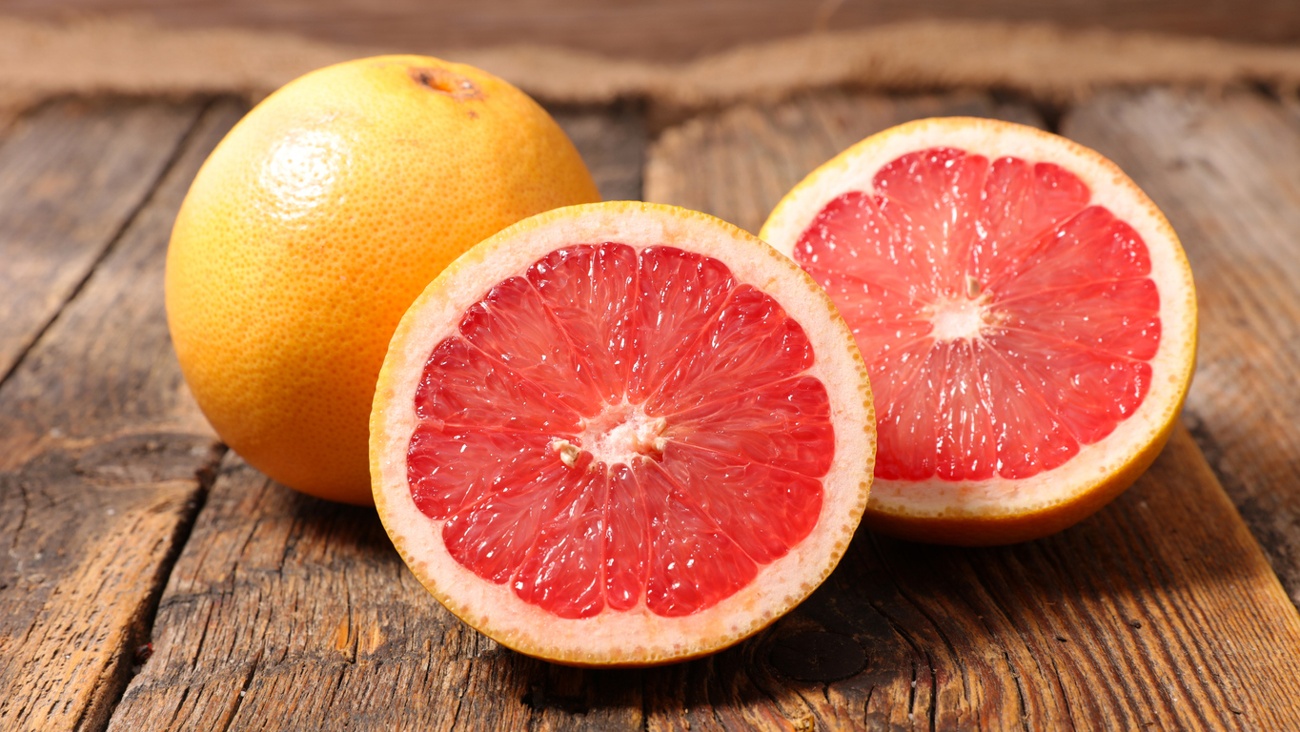
Grapefruit
Grapefruit is a citrus fruit that is rich in vitamin C. One cup of chopped grapefruit can contain about 70 mg of vitamin C, which is about 93% of the recommended daily amount for an adult. In addition to vitamin C, grapefruit is also rich in other health-promoting nutrients, such as vitamin A, potassium and lycopene, an antioxidant compound that may help protect against certain types of cancer and heart disease. It is also low in calories and rich in fiber, making it an excellent choice for those looking to lose weight or maintain a healthy weight. Therefore, including grapefruit in your diet can be a good way to increase your intake of vitamin C and other important nutrients.
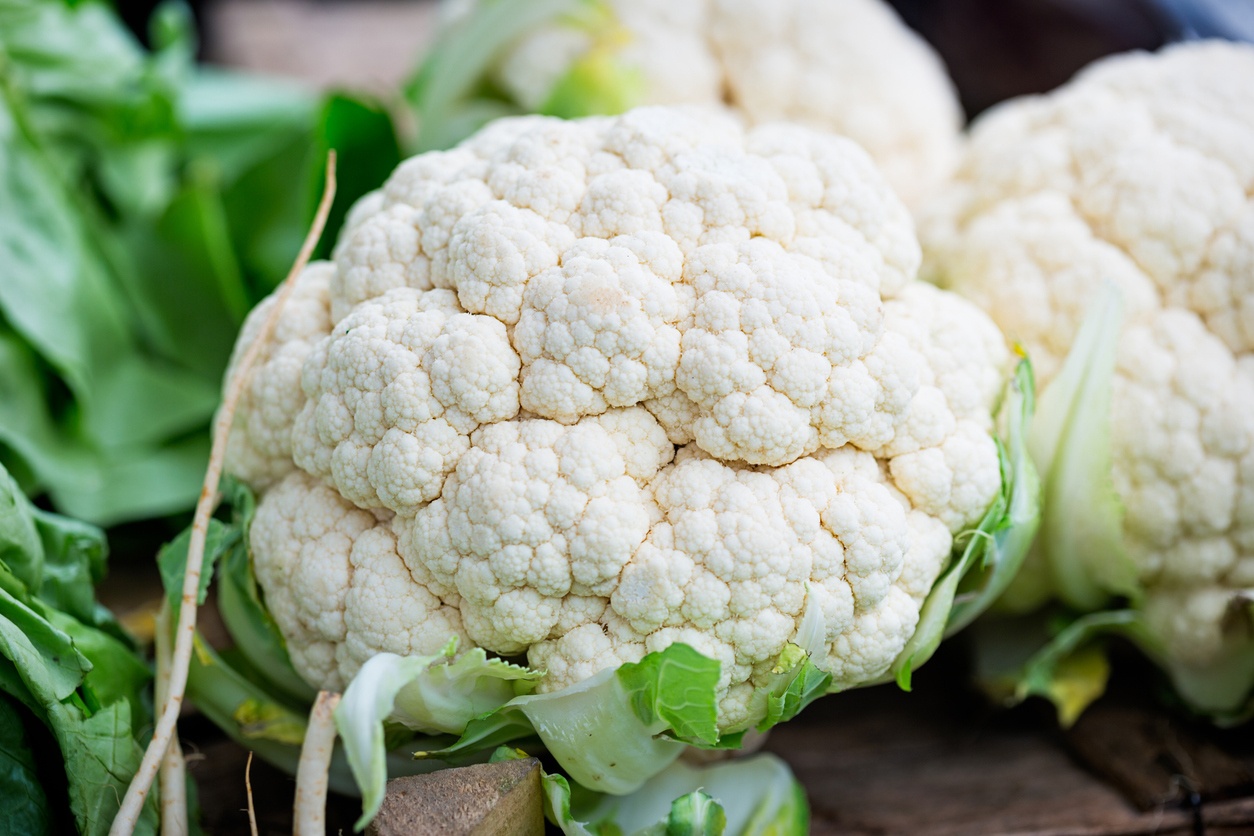
Cauliflower
Cauliflower is a cruciferous vegetable that is a good source of vitamin C. One cup of raw chopped cauliflower can contain about 50 mg of vitamin C, which is about 67% of the recommended daily amount for an adult. In addition to vitamin C, cauliflower is also rich in other health-promoting nutrients, such as vitamin K, which is important for blood clotting and bone health. It is also rich in fiber, making it a good choice for digestive health and blood sugar regulation. In addition, cauliflower is low in calories and can be used in a variety of recipes, making it an excellent choice for those looking to lose weight or maintain a healthy weight. Therefore, including cauliflower in your diet can be a good way to increase your intake of vitamin C and other important nutrients.
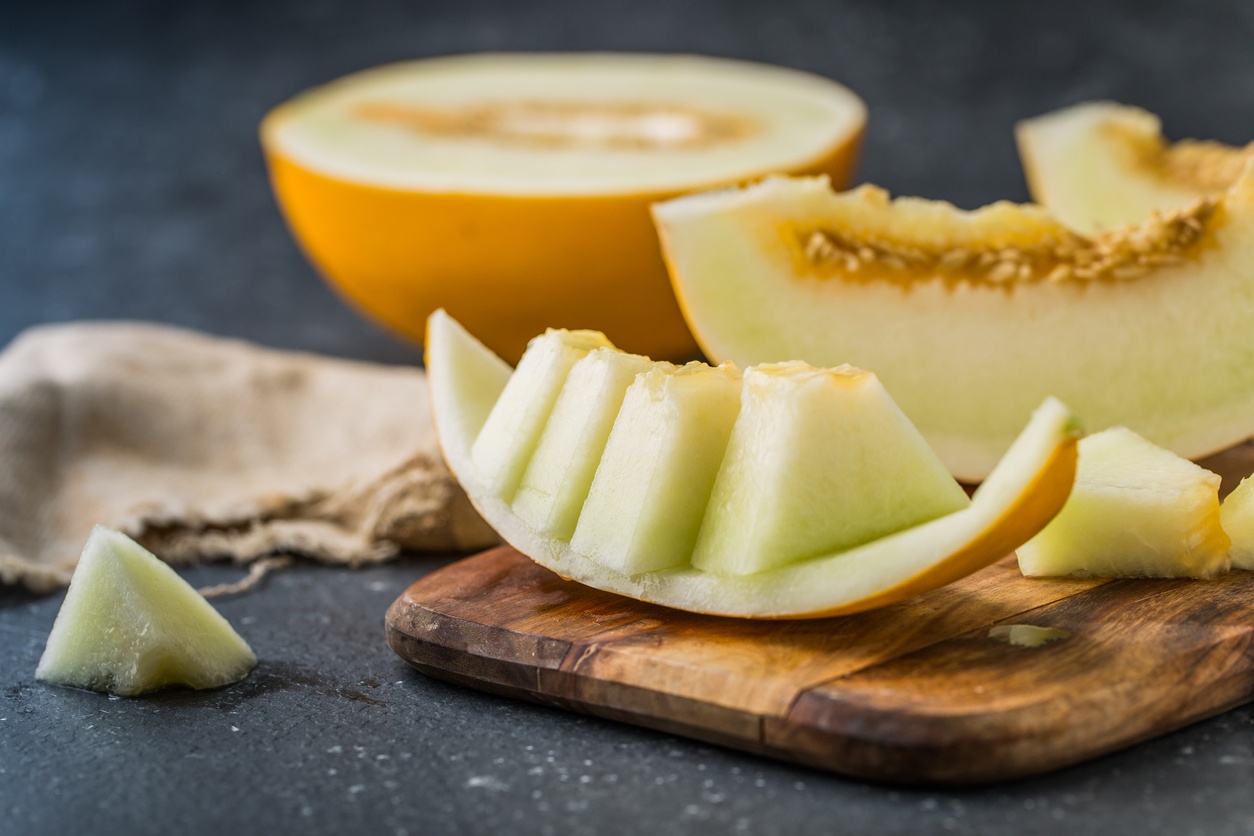
Melon
Melon is a sweet, refreshing fruit that is rich in vitamin C. One cup of cubed cantaloupe can contain about 68 mg of vitamin C, which is about 91% of the recommended daily amount for an adult. In addition to vitamin C, cantaloupe is also rich in other health-promoting nutrients, such as vitamin A, which is important for eye health and immune function. It is also rich in potassium, which is important for cardiovascular health and blood pressure regulation. In addition, cantaloupe is low in calories and rich in water, making it an excellent choice for those looking to lose weight or maintain a healthy weight. Therefore, including cantaloupe in your diet can be a good way to increase your intake of vitamin C and other important nutrients.
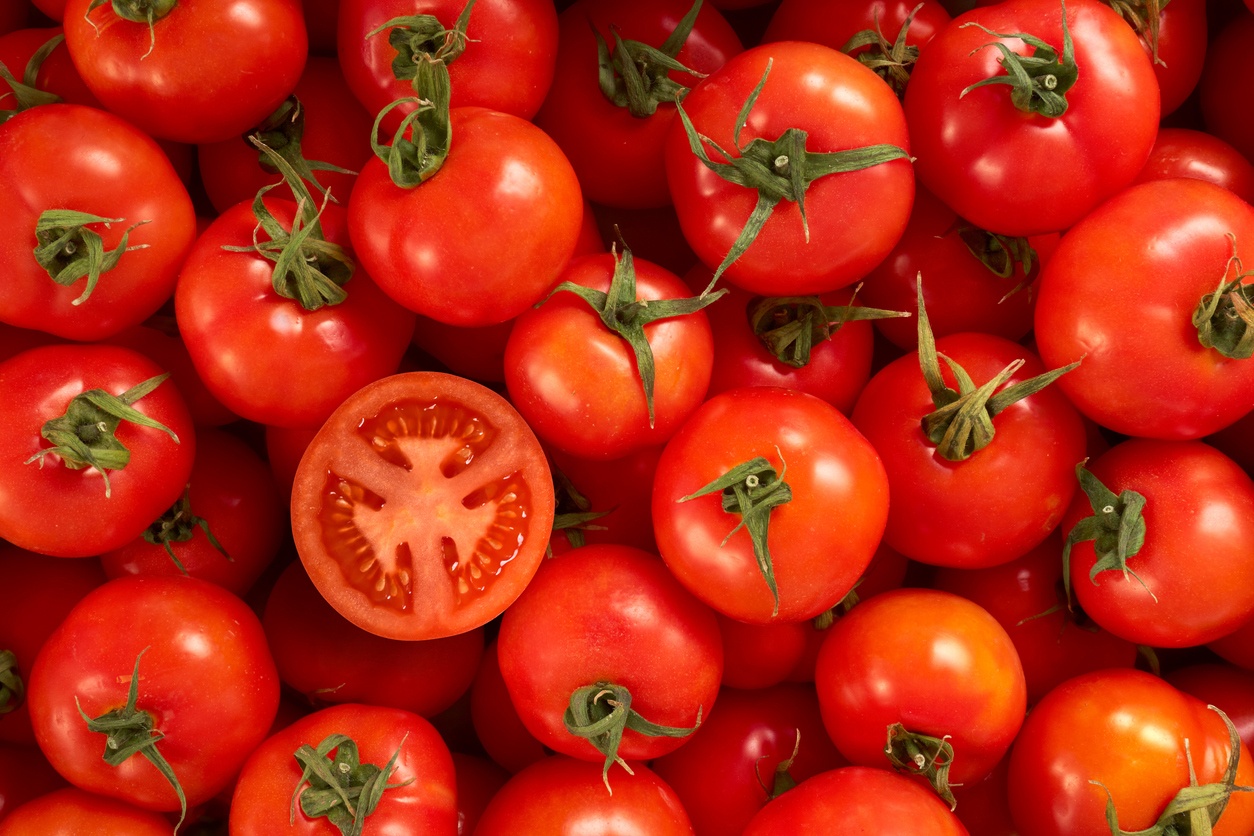
Tomato
The tomato is a fruit (although it is usually consumed as a vegetable) that is a good source of vitamin C. One cup of chopped tomatoes can contain about 23 mg of vitamin C, which is about 31% of the recommended daily amount for an adult. In addition to vitamin C, tomatoes are also rich in other health-promoting nutrients, such as vitamin A, which is important for eye health and immune function. They are also rich in lycopene, an antioxidant compound that may help protect against certain types of cancer and heart disease. In addition, tomatoes are low in calories and high in fiber, making them an excellent choice for those looking to lose weight or maintain a healthy weight. Therefore, including tomatoes in your diet can be a good way to increase your intake of vitamin C and other important nutrients.
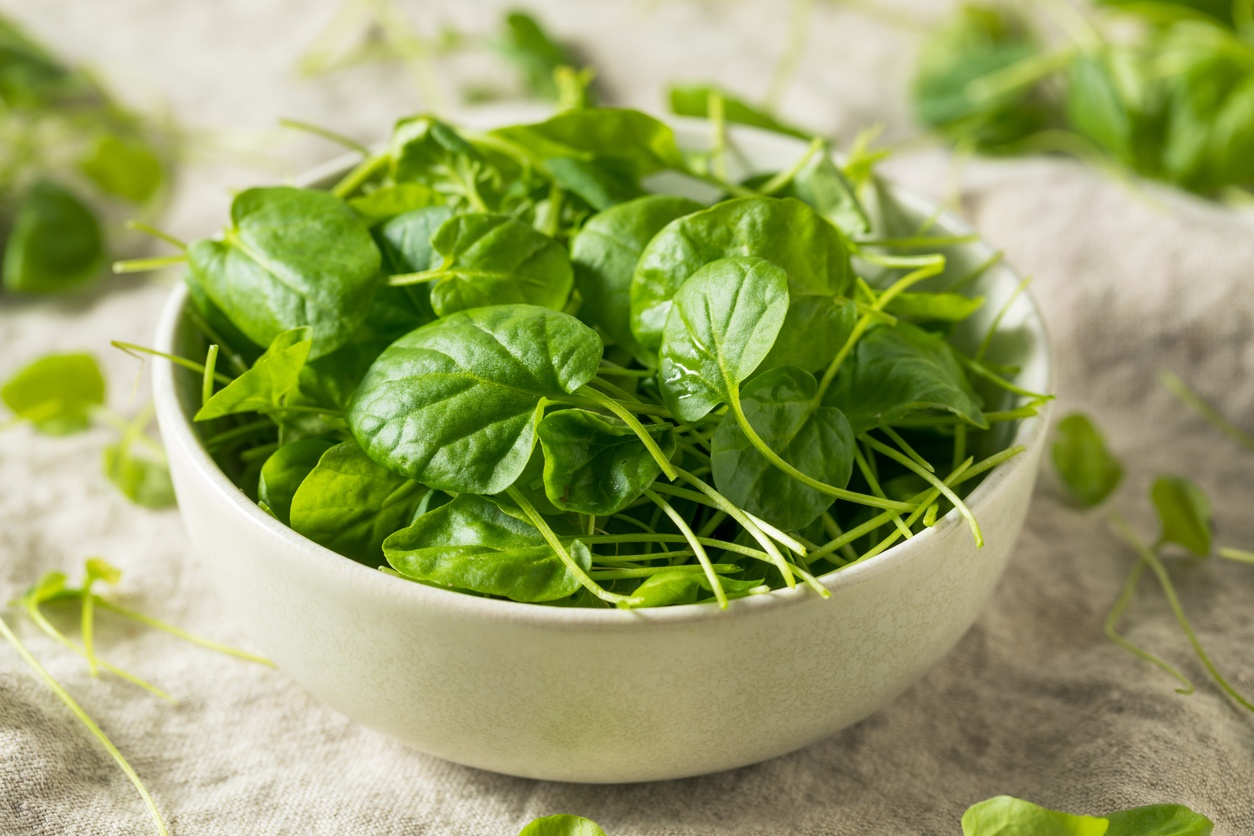
Watercress
Watercress is a dark green leafy vegetable that is an excellent source of vitamin C. One cup of raw watercress can contain about 14 mg of vitamin C, which is about 19% of the recommended daily amount for an adult. In addition to vitamin C, watercress is also rich in other health-promoting nutrients such as calcium, iron and folic acid. It is also low in calories and rich in fiber, making it an excellent choice for those looking to lose weight or maintain a healthy weight. In addition, watercress has anti-inflammatory properties and can help improve digestive health. Therefore, including watercress in your diet can be a great way to increase your intake of vitamin C and other important nutrients.
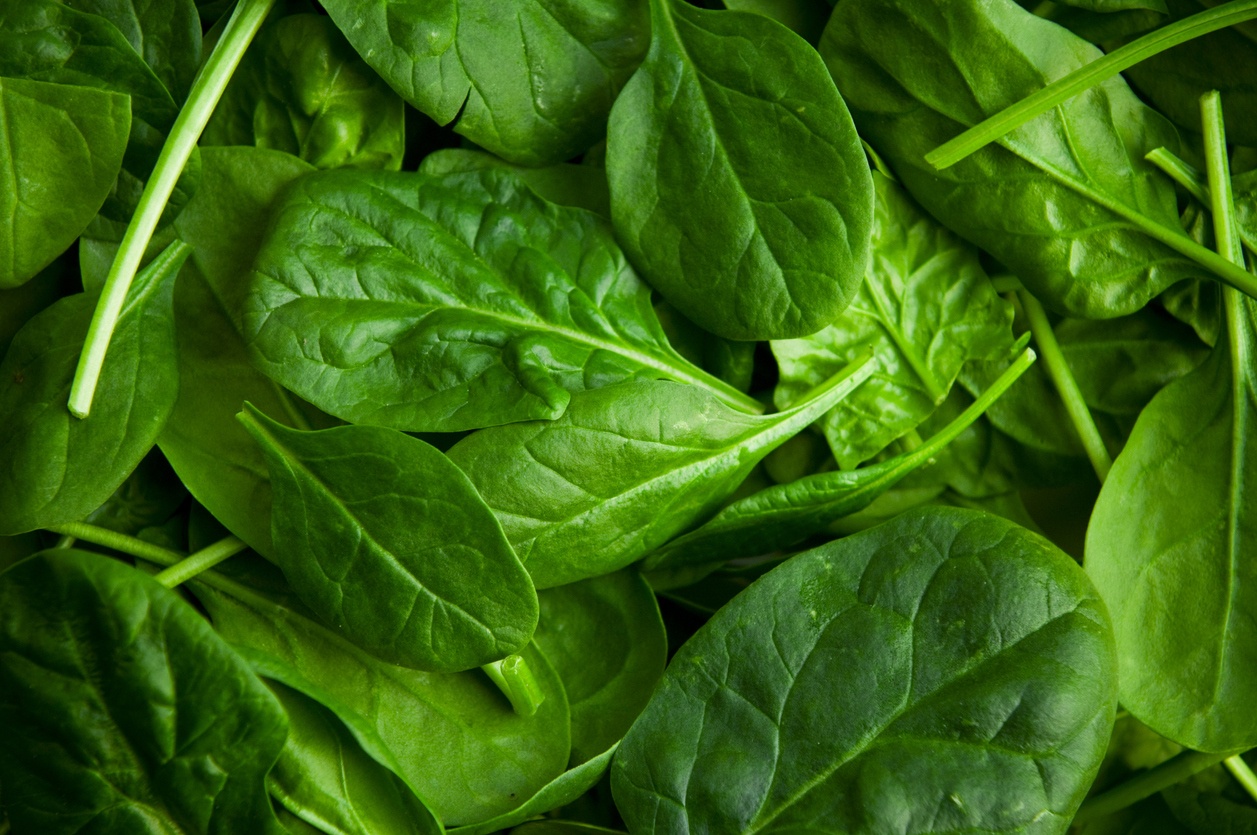
Spinach
Spinach is a dark green leafy vegetable that is a good source of vitamin C. One cup of raw spinach can contain about 8 mg of vitamin C, which is about 11% of the recommended daily amount for an adult. In addition to vitamin C, spinach is also rich in other nutrients beneficial to health, such as iron, calcium and vitamin A. They are also low in calories and rich in fiber, making them an excellent choice for those looking to lose weight or maintain a healthy weight. In addition, spinach contains antioxidant and anti-inflammatory compounds that may help protect against chronic diseases, such as heart disease and cancer. Therefore, including spinach in your diet can be a good way to increase your intake of vitamin C and other important nutrients.
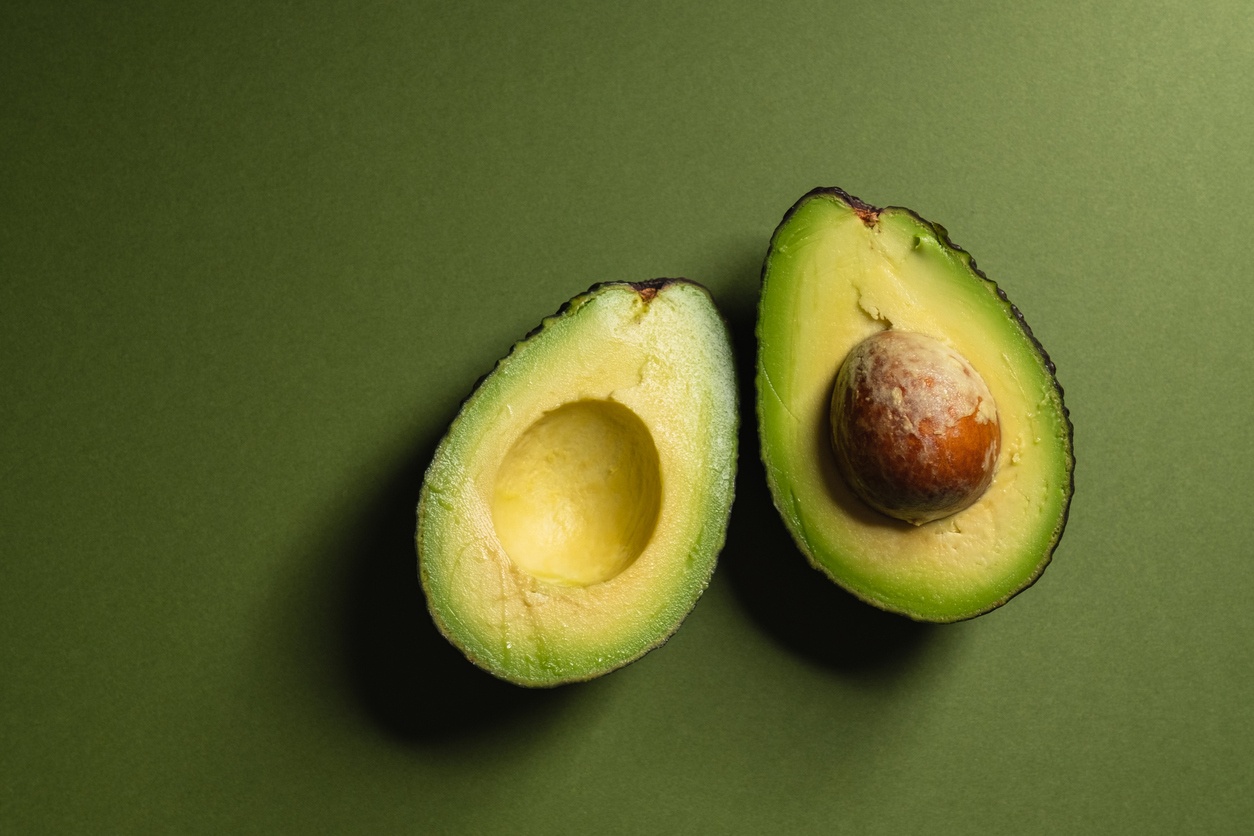
Avocado
Avocado is a nutrient-rich fruit, but it is not really an important source of vitamin C. A 100-gram serving of avocado contains about 10 mg of vitamin C, which is only about 11% of the recommended daily allowance for an adult. Although it is not particularly rich in vitamin C, avocado is a healthy food because of its high content of healthy fats, fiber and other important nutrients. Avocado is a good source of potassium, vitamin K, folic acid and vitamin B6. It also contains carotenoids and other antioxidants that may help protect against chronic diseases, such as heart disease and cancer. In addition, the high content of healthy fats in avocados can help improve heart health and lower blood cholesterol levels.
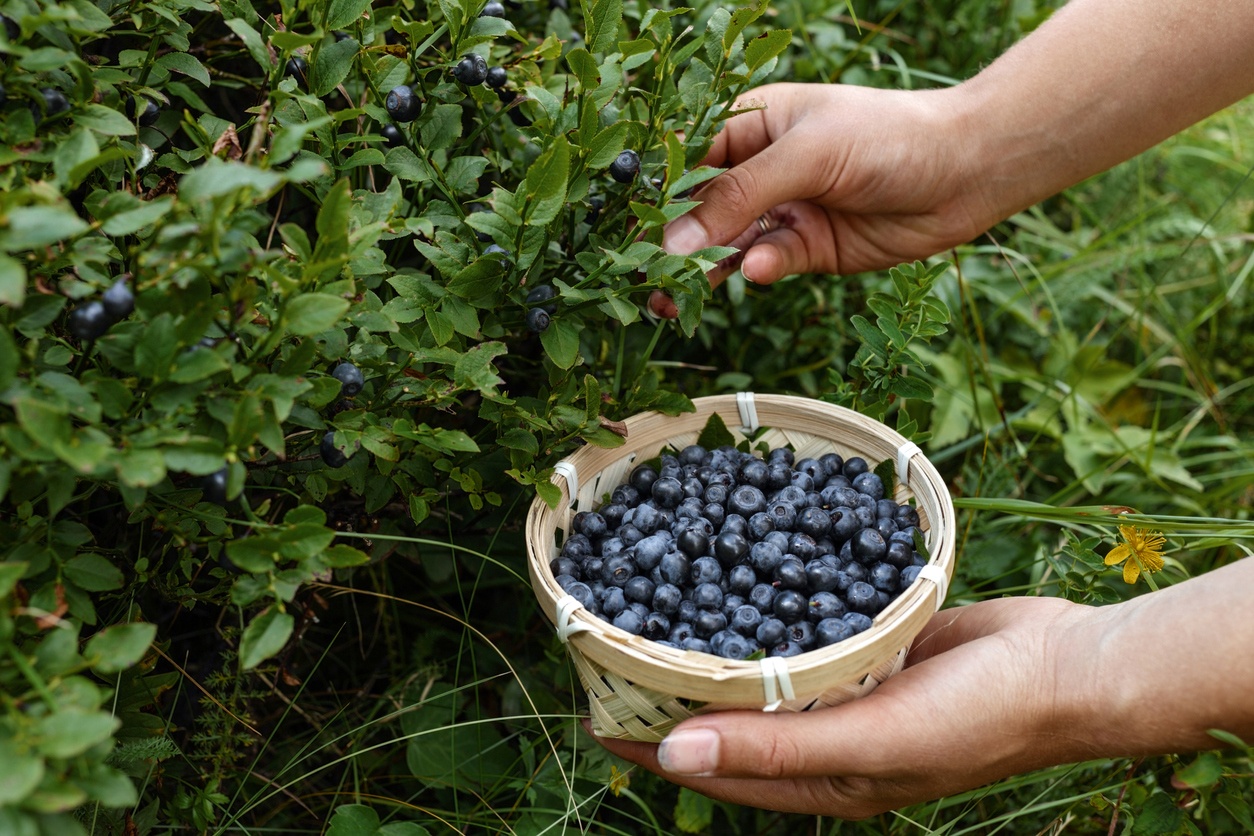
Blueberries
Blueberries are a fruit that contains vitamin C, although not in large amounts. A one-cup serving of fresh blueberries contains about 14 mg of vitamin C, which is about 16% of the recommended daily allowance for an adult. In addition to vitamin C, blueberries are also rich in other health-promoting nutrients. They are an excellent source of fiber and contain antioxidants such as anthocyanins and flavonoids, which can help reduce inflammation in the body and improve heart health. Blueberries have also been shown to have anti-inflammatory properties and may help protect against chronic diseases such as cancer and Alzheimer’s disease.
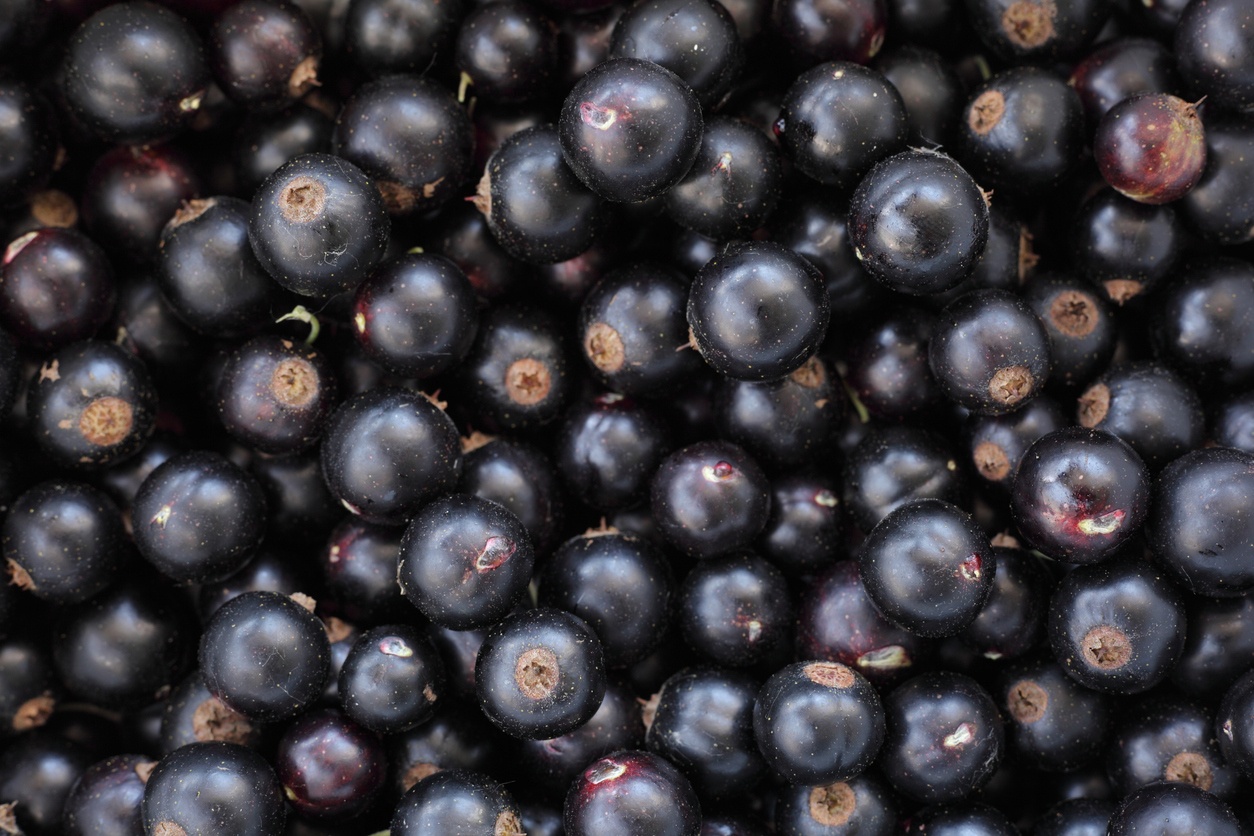
Black currants
Black currants are a fruit rich in vitamin C. A one-cup serving of fresh black currants contains approximately 203 mg of vitamin C, which is about 226% of the recommended daily allowance for an adult. In addition to vitamin C, black currants are also rich in other health-promoting nutrients such as vitamin K, vitamin E and fiber. They are also rich in anthocyanins and other antioxidants, which may help protect against chronic diseases, such as heart disease and cancer. The high vitamin C content in black currants makes them an excellent choice for those looking to increase their intake of this essential nutrient. Black currants can be consumed fresh, frozen or in juice form. They can also be used in desserts and other dishes to add additional flavor and nutrients.
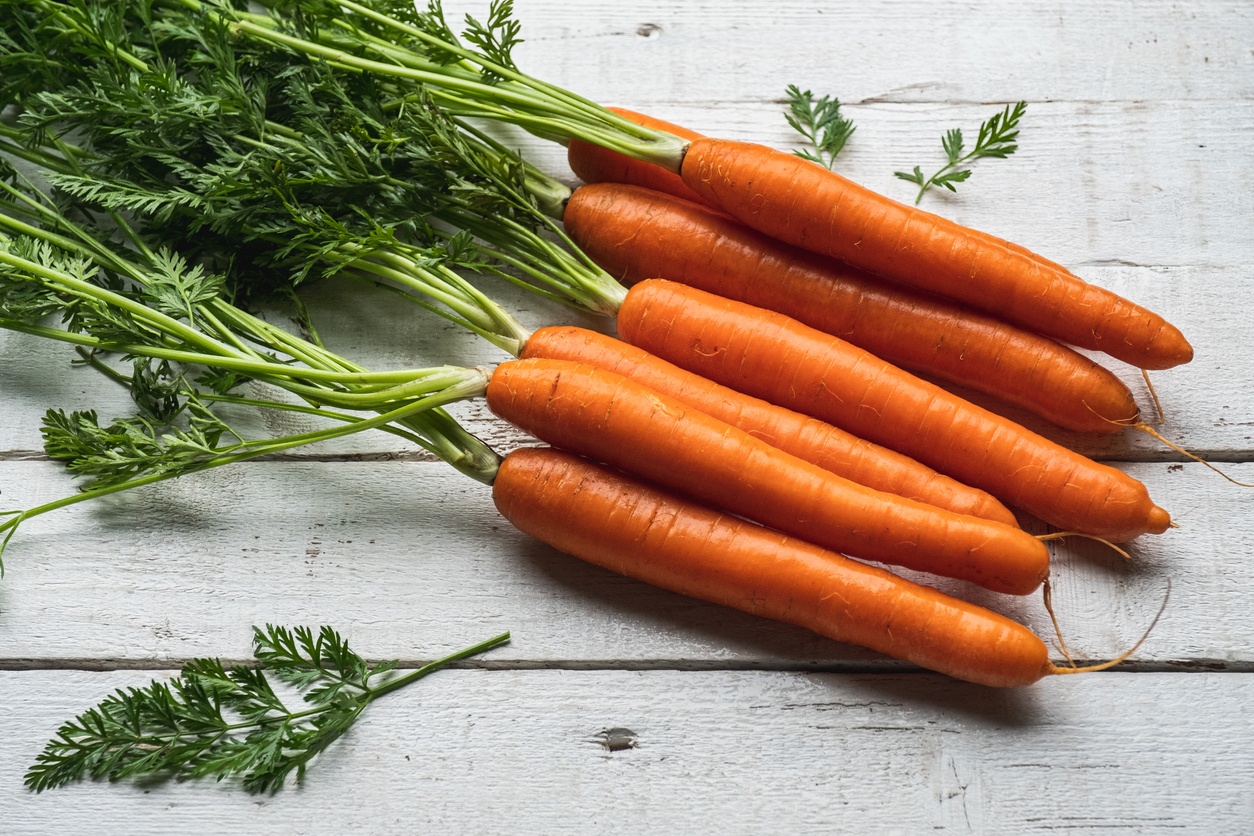
Carrot
Carrots are a good source of important nutrients, but they are not particularly rich in vitamin C. A 100-gram serving of raw carrots contains about 5.9 mg of vitamin C, which is about 7% of the recommended daily allowance for an adult. Despite not being a major source of vitamin C, carrots are an excellent source of other nutrients, such as vitamin A, potassium and fiber. Vitamin A is essential for eye health and immune function, while potassium is important for heart health and muscle function. In addition, the fiber in carrots can help regulate digestion and maintain a healthy gut.
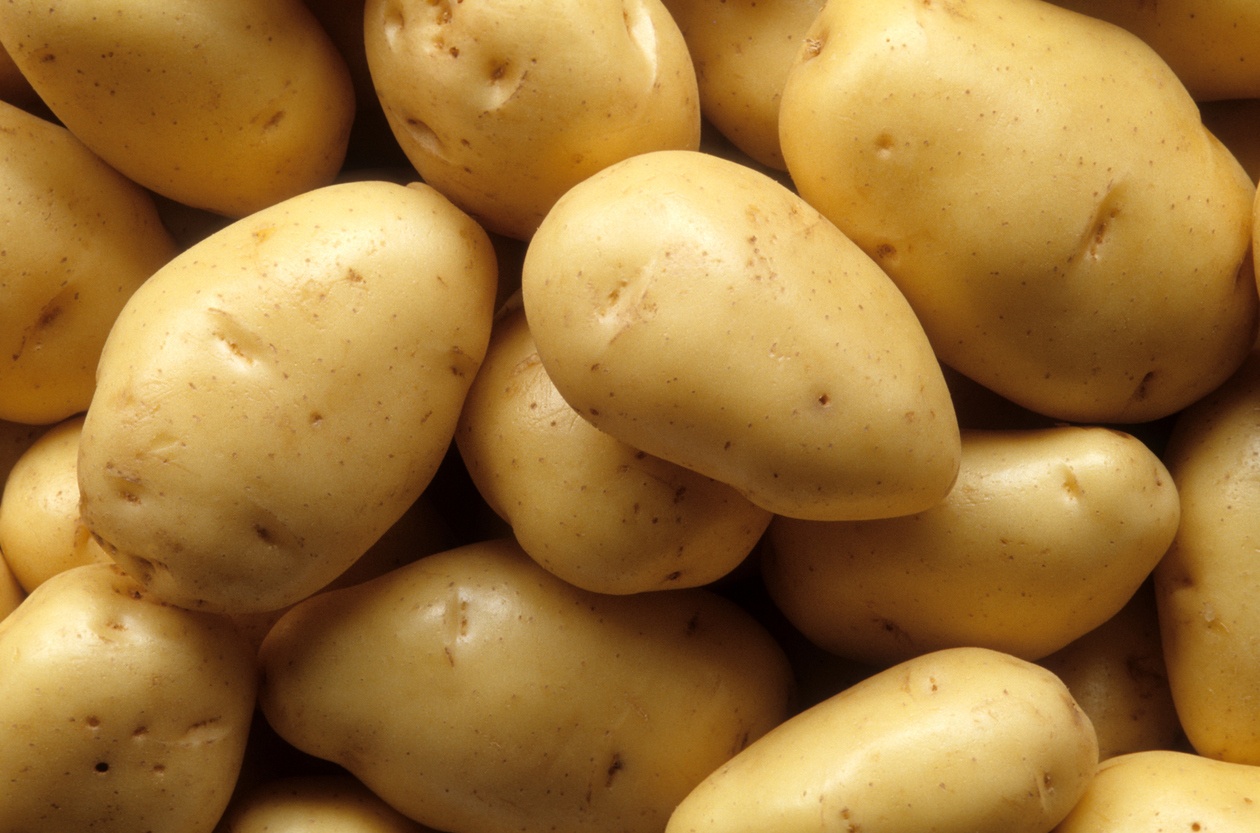
Potato
Potatoes are a good source of several important nutrients, but they are not particularly rich in vitamin C. A 100-gram serving of cooked potatoes contains about 7.4 mg of vitamin C, which is about 10% of the recommended daily allowance for an adult. Despite not being a major source of vitamin C, potatoes are an excellent source of other nutrients, such as potassium, vitamin B6 and fiber. Potassium is important for heart health and muscle function, while vitamin B6 is essential for brain health and mood regulation. In addition, the fiber in potatoes can help regulate digestion and maintain a healthy gut. It is important to note that the way potatoes are prepared can affect their nutrient content. Fried or processed potatoes often contain high levels of fat and sodium, which can negatively affect health. To get the most nutritional value from potatoes, it is recommended to eat them boiled, baked or steamed, and with the skin intact whenever possible, as the skin contains many of the nutrients in potatoes.
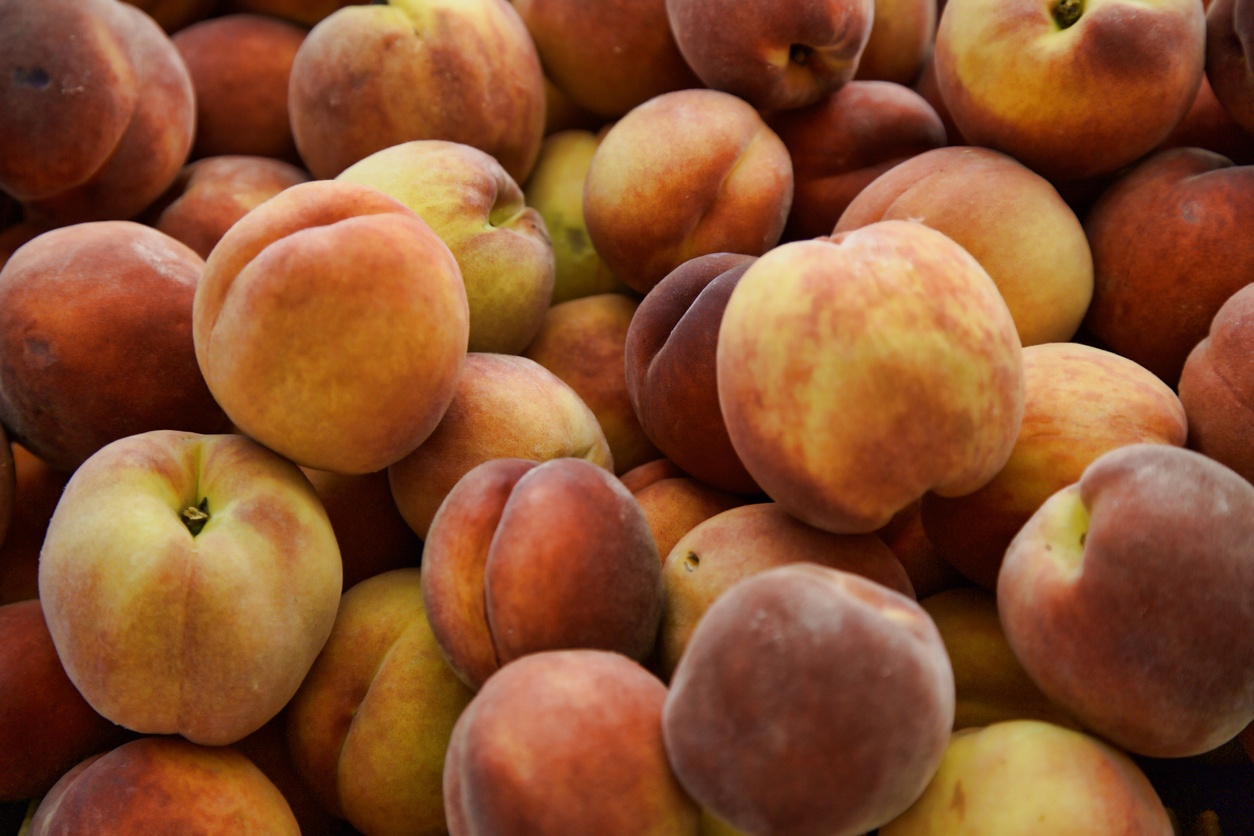
Peach
Peaches are a good source of vitamin C. A 100-gram serving of fresh peaches contains about 6.6 mg of vitamin C, which is about 9% of the recommended daily allowance for an adult. In addition to vitamin C, peaches also contain other important nutrients, such as vitamin A, fiber and antioxidants. Vitamin A is essential for vision health, while the fiber in peaches can help regulate digestion and maintain a healthy gut. Antioxidants in peaches, such as carotenoids and flavonoids, can help protect against chronic diseases such as cancer and heart disease.
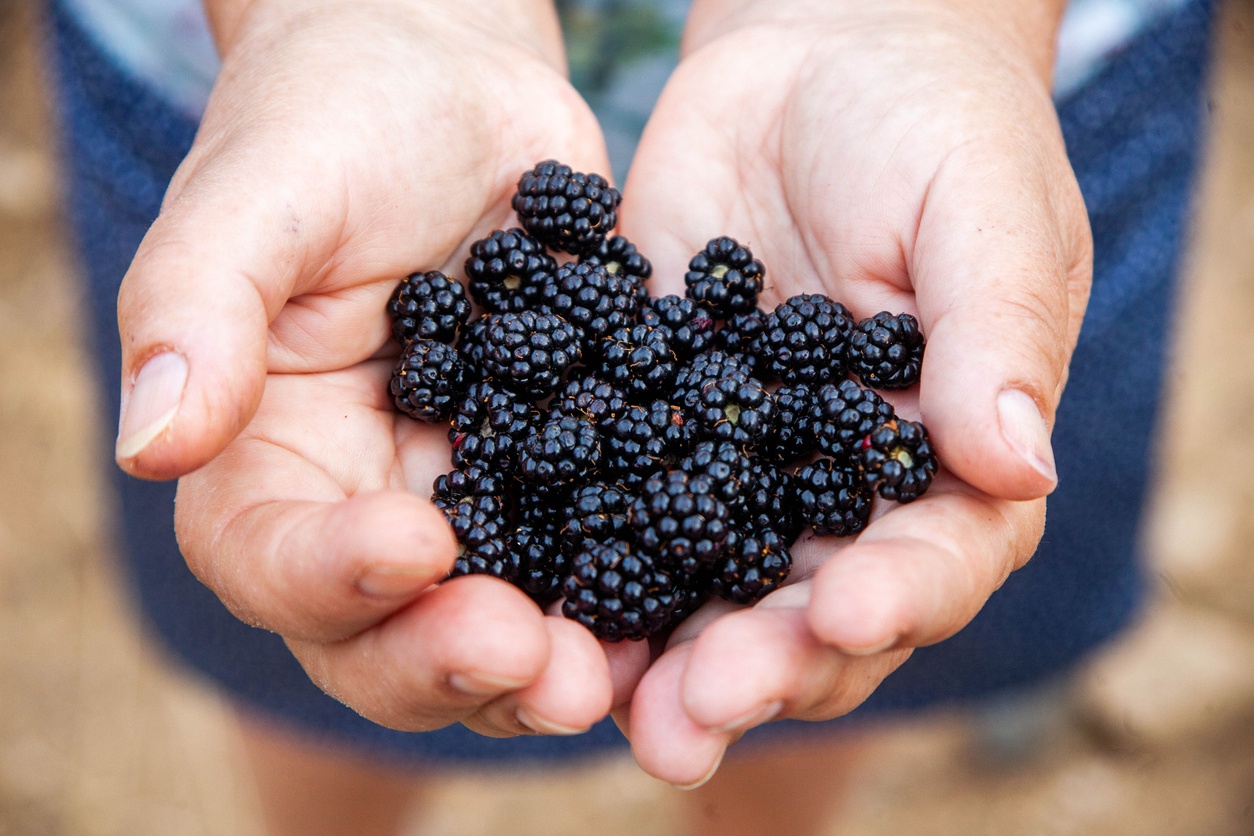
Blackberry
Blackberries are an excellent source of vitamin C. A 100-gram serving of fresh blackberries contains approximately 21 mg of vitamin C, which is about 28% of the recommended daily allowance for an adult.In addition to vitamin C, blackberries also contain other important nutrients, such as fiber, antioxidants and anti-inflammatory compounds. The fiber in blackberries can help regulate digestion and maintain a healthy gut, while the antioxidants and anti-inflammatory compounds can help protect against chronic diseases such as cancer and heart disease.






